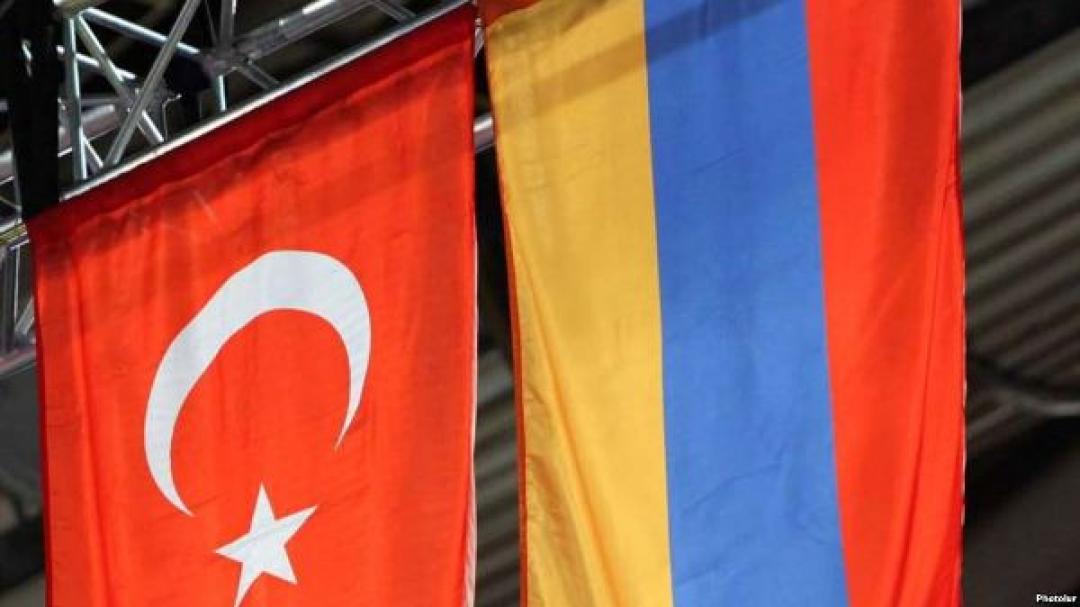
The restriction on Turkish goods in Armenia lifted

Armenia lifted the embargo on Turkish goods. Armenia originally imposed the blockade after Ankara supported Azerbaijan during the Nagorno-Karabakh conflict last year.
"A decision was made not to extend the embargo on the import of Turkish goods into the country," the economy ministry said on Facebook.
Despite the lack of a definitive conclusion in Armenia on the "economic appropriateness" of extending the restriction on Turkish goods imports, the Armenian government eased the embargo by considering all viewpoints, both positive and negative.
The restriction was not having the expected impact, according to Babken Tunyan, Deputy Chairman of the Armenian Parliament's Economic Affairs Committee, and despite the embargo, many importers were finding methods to get Turkish items into the Armenian market.
“If we look at this issue from a patriotic perspective, what matters is - why is there a demand for Turkish products in Armenia? If we were to compare with the situation, we had during the 44-day war when everyone was boycotting Turkish products, now we must understand why people are again willing to buy Turkish products. If there is demand for some product, that product will find its market and will reach its consumer, be it in circumvent ways or at higher costs. That’s why it’s not right to artificially do something. If we put aside the emotional part, we must evaluate its appropriateness from an economic perspective,” Tunyan said.
Tunyan, an economist, also pointed out that the prohibition was only temporary and limited, affecting only finished items. Furthermore, the list of prohibited items was updated multiple times once it was discovered that there was no viable replacement on the market.
“Economically, unfortunately, this ban led to a situation where Turkish products were entering Armenia through different ways, because carrying out customs administration and control is practically impossible, and this simply led to prices of clothes, household items and other products in Armenia to grow, because these products are going through more complicated routes. Meaning, the objective we’d initially set politically doesn’t serve its purpose.”
The Ministry of Economy, on the other hand, agreed that the prohibition had both good and bad economic impacts throughout its one-year implementation period.
According to the government, several freshly created or expanded enterprises in light industry, furniture and building material manufacturing, and agriculture are among the positives. The "substantial influence on inflation" on numerous items is the biggest negative outcome. In addition, several Armenian businessmen have appealed for the restriction to be lifted, according to the economy ministry.
Pegasus Airlines requests permit from Armenian aviation to re-launch Istanbul-Yerevan flights
The Turkish company Pegasus Airlines asked Armenian aviation authorities to permit the re-launch its roundtrip flights from Istanbul to Yerevan, the spokesperson for the Armenian Ministry of Territorial Administration and Infrastructures Sona Harutyunyan told.
“Pegasus applied to the Civil Aviation Committee of Armenia requesting a permit to operate two flights a week starting February,” Harutyunyan said.
The application is now being processed and a decision will be issued soon.
Last week, the Flyone Armenia airline announced that it was granted a permit by the Armenian aviation regulator to operate flights from Yerevan to Istanbul. Flyone Armenia had said that it’s awaiting a permit from Turkish aviation authorities to launch the flights.
Turkey and Armenia announced recently that steps toward normalisation are being taken and that charter flights between the two countries would soon resume.
On Dec. 15, Turkey appointed Serdar Kilic, a former ambassador to the US, as its special envoy to discuss steps for normalisation with Armenia. Three days later, Armenia appointed its special representative for dialogue with Turkey, National Assembly Deputy Speaker Ruben Rubinyan.
For decades, the two countries' borders have been blocked, and diplomatic connections have been suspended. In 2009, Armenia and Turkey signed a historic peace agreement to re-establish ties and open their shared border after decades of conflict, but the agreement was never ratified, and relations have remained tense.
See Also


Simonyan: “Armenia Should Trade with Turkey and Azerbaijan Instead of Closing Borders”

Mirzoyan Meets US Deputy Assistant Secretary Joshua Huck

Azerbaijani President Holds Talks with UAE and German Business Delegations on Economic Cooperation

Grigoryan Confirms Armenia’s Readiness to Dissolve OSCE Minsk Group Upon Peace Treaty Signing

